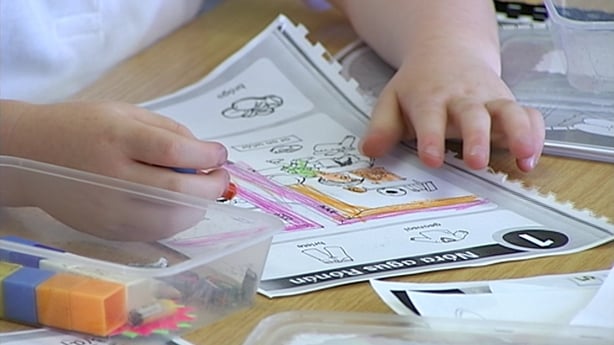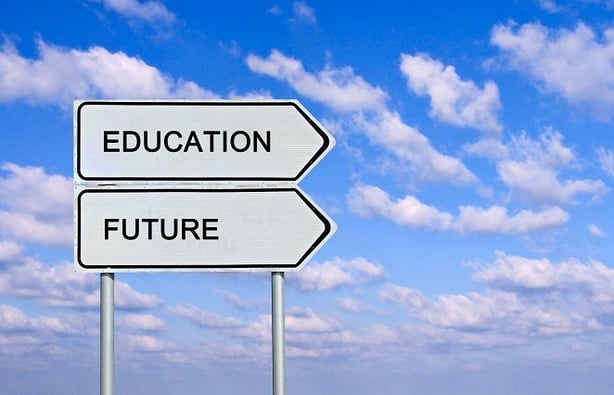Opinion: there is much for Ireland to consider in the most recent UNESCO Global Education Monitoring report
By Cathal De Paor, Mary Immaculate College
Last month, the former French government minister, Audrey Azoulay took office as the new Director-General of UNESCO following her recent election. It signals the start of a new chapter for the organisation responsible for international cooperation in education, science, culture and communication.
Making progress on the UN 2030 Sustainable Development Goals (SDG) will occupy much of Azoulay's time, particularly SDG 4. This goal focuses completely on education, seeking to "ensure inclusive and equitable quality education and promote lifelong learning opportunities for all". An annual Global Education Monitoring (GEM) documents the progress being made on this goal.
While reports such as the annual Education at a Glance from the OECD attracts much coverage in Irish media each September, there are plenty of reasons why we should give more than a cursory look at this UNESCO report. The overall theme for the report this year – accountability – makes it even more apposite.

Among the key messages, the report calls for all countries to produce clearly-designed national education plans and monitoring reports. Currently only about half do so and most of them not regularly.
Ireland has been doing its homework here. The Action Plan for Education 2016-19, published in September 2016, is routinely followed up with quarterly progress reports and an updated plan each year. The plan has a particular focus on excellence and innovation, and on creating the economic success needed to sustain a quality education system. It is certainly an exercise in accountability, with the responsibilities of all relevant partners identified.
But creating the right kind of accountability is not without its challenges. As the UNESCO report shows, the wrong kind may jeopardise progress and allow harmful practices to become embedded. Various stakeholders are accountable in different ways, although all raise similar issues: accountable to whom, on what basis, for what purpose and with what consequences.
Within the same school, there can be vast differences in the benefits which children are able to derive from their education.
The UNESCO report contains its fair share of charts and tables, along with a scientific analysis and a research review. However, the inclusion of the testimonies from around the world makes for a very insightful report, revealing the great diversity in the lived experience of those involved – children, teachers, parents and all other parties - in their own words.
In this way, the report brings to the fore very effectively the responsibilities of all countries for working on a single, universal education agenda. This commitment has been given by all countries and is enshrined in the Incheon Declaration from 2015.
While Ireland has experienced famine and armed conflict, it has avoided the kind and scale of difficulties that can hinder educational progress in other countries. Returning to the Department of Education's action plan, the stated ambition is to "make Ireland the best education and training service in Europe." And accountability will have a role in that.

But the UNESCO report also raises questions regarding our role in this universal education agenda. The production of the UNESCO report itself represents part of Ireland’s contribution, as we are named among 12 governments, along with other bodies, as funders of the report.
At the same time, there is the reality that a school in Ireland can also be a very different country to the one located a short distance away, with some school communities having to work in very arduous circumstances. Within the same school, there can be vast differences in the benefits which children are able to derive from their education. These inequalities are often hidden from view in international comparisons.
Ireland does comparatively well on many indicators, but closer analysis is also revealing
Apart from these issues, the detail in the report also provides useful lessons on particular aspects of education. Ireland does comparatively well on many indicators, but closer analysis is also revealing. For example, in the section dealing with STEM, there is a reminder that while the number of female graduates is high in Ireland, those graduating with these subjects is still rather low, compared to some less developed countries.
The themes of the GEM reports convey the key priorities of the day. The 2016 report was entitled Education for people and planet, while the 2018 report will focus on migration. Together with this year’s theme of accountability, they illustrate how education has become a transnational issue, that needs to be envisioned on a global basis, across countries and cultures, in the same way that other issues are now being addressed. Only in this way can sustainable development in all its dimensions be realised - economic, social and environmental.
Cathal De Paor is a senior lecturer and Director of Continuing Professional Development at the Faculty of Education at Mary Immaculate College
The views expressed here are those of the author and do not represent or reflect the views of RTÉ

